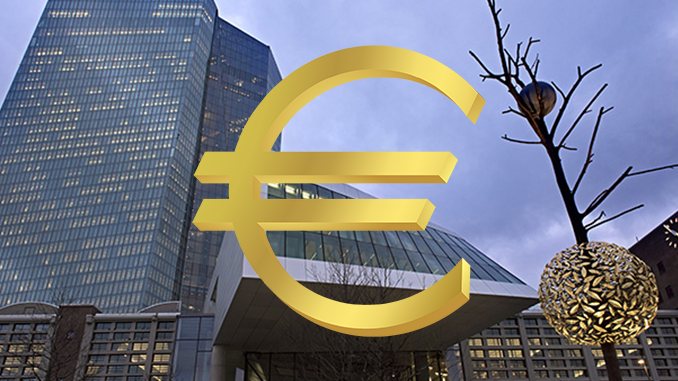
An E-Euro as a digital currency under the supervision of the European Central Bank (ECB) seems more likely. At a conference of the Bundesbank, ECB boss Christine Lagarde and the head of the French central bank François Villeroy de Galhau spoke out in favor of the rapid implementation of an E-Euro.
In the European discussion about an E-Euro, the European Central Bank (ECB) believes that the time is ripe for a decision. In a few weeks’ time, the euro zone working group will present the results of its investigations into a Central Bank Digital Currency (CBDC), said ECB President Christine Lagarde at a conference of the Deutsche Bundesbank on “Banks and Payments in the Digital World”. In her speech, Lagarde advocated a determined push for the E-Euro in order not to fall behind private initiatives like Facebook Libra.
In his speech, the head of the French central bank, François Villeroy de Galhau, also advocated a digital euro. He said he sees a maximum of one to two years left on this issue, so that Europe can demonstrate its innovative strength internationally. Even the previously rather CBDC-skeptical Bundesbank president Jens Weidmann seems to be slowly turning around and in his speech at the same conference mentioned the possibilities that a digital euro would open up, for example, for machine-to-machine payments and for smart contracts.
Pros and cons of the E-Euro
ECB boss Lagarde focuses her argumentation on the wishes of the citizens. Cash is still by far the most popular means of payment in everyday life. But in the Corona pandemic, the trend towards online shopping and cashless payment is increasing. Surveys show that citizens trust state banks more than private commercial banks. It derives from this the mandate for the ECB to prepare for an E-Euro and to demand support from politicians. The risk that Facebook Libra or similar projects with private Stablecoins will pre-empt the ECB is too great, she said. Because then it would no longer be possible to rule out influence on monetary stability.
François Villeroy de Galhau, as governor of the Banque de France, expressed a similar view. He emphasized that a CBDC in the euro zone is indispensable if the field of digital currencies is not to be left to others. If the EU acts decisively now, it will open itself up to innovation and thus strengthen the financial sector. Like Lagarde, he believes that the E-Euro should come both as digital central bank money for institutional customers and for citizens in their everyday lives.
Weidmann remains somewhat more cautious for the Bundesbank. He points out the risks for the banking sector posed by an E-Euro, which could arise if citizens were to switch their credit balances from bank accounts to an ECB digital Euro. For example, a drastic change could take place in lending if private banks lost the basis for it. But Weidmann also sees advantages of a CBDC. This is already in demand when it comes to automated payments, such as when a car pays for parking space or gasoline itself. Smart contracts in industry are just as much a field of application for an E-Euro as other automated processes.
Conclusion: What is the next step with the E-Euro?
Lagarde is generally regarded as open to crypto-currencies, and national test runs for an E-Euro have already begun in France. At the beginning of the year Weidmann had given a clear rejection to a CBDC, but the German position is apparently shifting at the moment. Federal Minister of Finance Olaf Scholz is anyway in favor of the introduction of a digital euro. If France, Germany and the ECB can agree on a joint approach, the E-Euro should gain momentum. But one thing is also clear: This digital euro is intended to complement cash and existing digital payment solutions.
Still exciting for the crypto scene: What technology would the E-Euro be based on? Is it compatible with the existing solutions of the crypto industry and can it be used there directly as Stablecoin? And not least: What actually happens with Facebook Libra, where the concept was corrected in the direction of CBDC? Does China surprise other initiatives with an E-Yuan as CBDC? At first glance, the CBDC topic may seem a bit boring, but it has much more explosive power than many people think, and Europe would do well to prove itself a pioneer in this area.
Best place to buy Bitcoin:

Leave a Reply